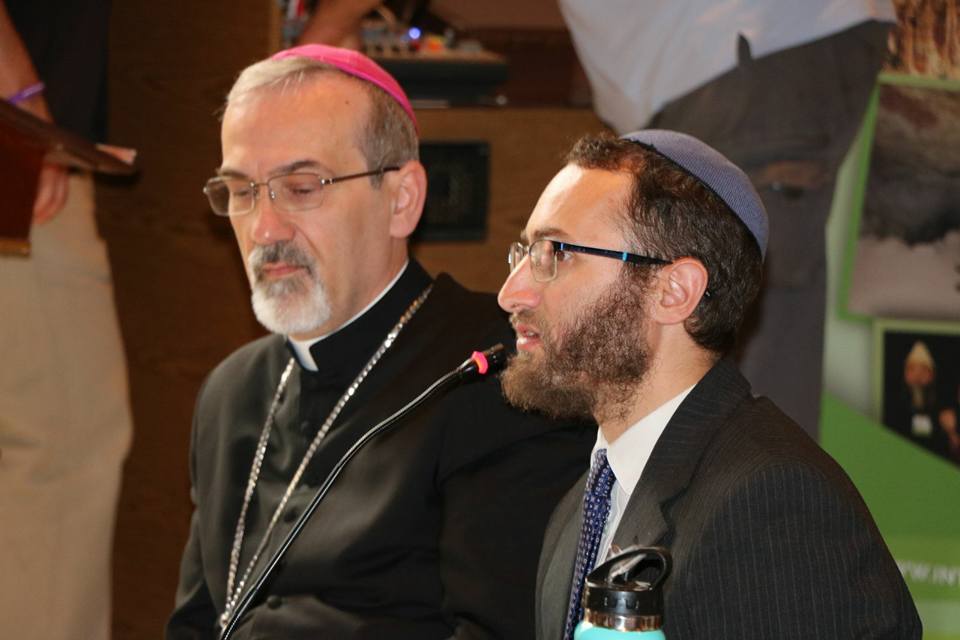Eight Orthodox rabbis, two Catholic priests, one Sunni Muslim imam (religious leader in a mosque) and a Sunni Muslim kadi (religious judge) were asked to comment on four hypothetical questions on medical ethics.
Two pediatrician neonatologists (specialists in newborns Prof. Michael Schimmel and Prof. Francis Mimouni), one pediatric neurologist and Israel Prize-winning expert on Jewish medical ethics (Prof. Avraham Steinberg) and a professor at the Hebrew University’s Faculty of Medicine (Dr. Moshe Kasirer) presented the clergymen with a questionnaire related to four simulated cases – Case 1, a non-viable, extremely premature infant; Case 2, a severely asphyxiated full-term infant with extensive brain damage; Case 3, a small pre-term infant with severe brain hemorrhage and likely extensive brain damage; and Case 4, a full-term infant with Down syndrome and a severe heart malfunction. All were asked to present the approach of their religious/ethical approach.
Their answers in the latest issue of the Israel Medical Association Journal (IMAJ) showed major differences among the three religious opinions in the definition of viability and in their approaches to quality of life. The aim of the study was to describe the attitudes of the three major monotheistic religions when encountering four complex neonatal situations.
Israel’s population consists of 75.6% Jews, 20.6% Muslim Arabs, 4.2% Christian Arabs or others. It is “diverse, with people of different religions, many of whom seek spiritual guidance during ethical dilemmas,” wrote the authors. “It is paramount for healthcare providers to be familiar with different religious approaches. Neonatologists must be sensitive to culture and religious when dealing with major ethical issues in the neonatal intensive care unit.”
Looking at Case 1, one of the two Catholic priests said that the case includes a premature delivery and not an abortion. From a Catholic Christian viewpoint, the important decisionmakers must be the family together with the local priest of the family’s church. “The issues at stake include the fate of the child in a holy world and issues of human dignity. Since we must rely on the medical team’s experience and expertise, and since they state that there are no survivors in the current medical settings, we advise that only comfort care be provided to this dying patient. After death, the baby should be baptized and buried according to Christian customs,” he wrote.
Both Sunni Muslims declared that a fetus older than 120 days after conception is viable, and that all efforts to save a life are justified. Since the baby was crying after birth, it has “all the rights that a normal human being inherits… All medical care should be provided including ventilator support and resuscitation measures.” He should be named and have a proper burial.
The rabbis wrote about the case that since the predicted survival rates of such a baby is very low, only comfort care should be given to the dying baby. But if there are doubts about how old the pregnancy was and the baby shows signs of life so it may be closer to 23 or 24 weeks, full medical care should be provided. When the baby dies, he should be buried in a Jewish cemetery, in a place specifically set aside for newborns.
In Case 2, the Christians said that the local priest and the family must be consulted. “Devout Catholic Christians may be able to see the secret love of God in such a child with a severely limited potential for social interactions…The priest must analyze the ability of the family and community to care for such a child.”
The Muslims agreed that the issue is controversial within Islam, and that while some advocate non-lifesaving procedures only if the parents ask for it, others said treatment is mandatory only if it ensures the cure of the patient.
The rabbis said there is “no justification for causing the death, and the withdrawal of a respirator from a patient who is dependent on it is an act of hastening death. Palliative measures to reduce suffering should be given to the baby, they added.
In Case 3, the Christians said that since the baby is unstable, cardiopulmonary resuscitation (CPR) need not be performed to sustain life at all costs. The Muslims said, however, that CPR should be carried out. “It is in God’s hands.” The rabbis said there was no need for CPR and no need to resuscitate because the baby’s life would be very short, but palliative and supportive care were required.
Finally, in Case 4, the Catholics said that children with Down syndrome must be treated as regular children. Heart surgery must be performed even if the risk is high. The Muslims advocated the surgery. The rabbis said that “whether or not the child has trisomy 21 is irrelevant as far as life-and-death decisions are concerned. An infant with Down syndrome has the same rights and claims for life as any other baby.” As for heart surgery, it is indicated if it is not experimental and does not have an immediately death rate of 50% or more, they ruled.
The authors concluded that “understanding this variability” in approaches is very important in countries whose population has various religious backgrounds. Their study showed “subtle but highly significant differences” among the clergymen.



